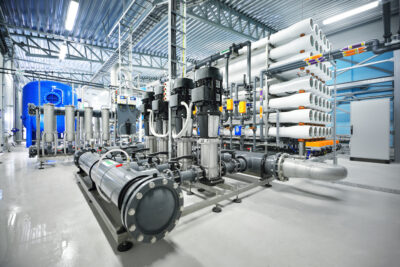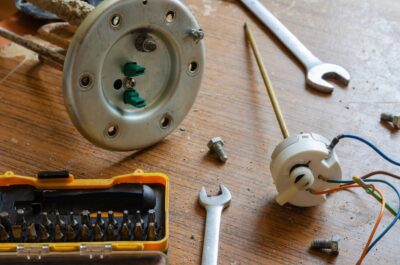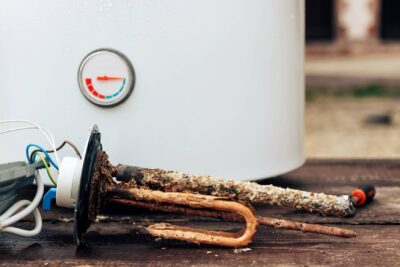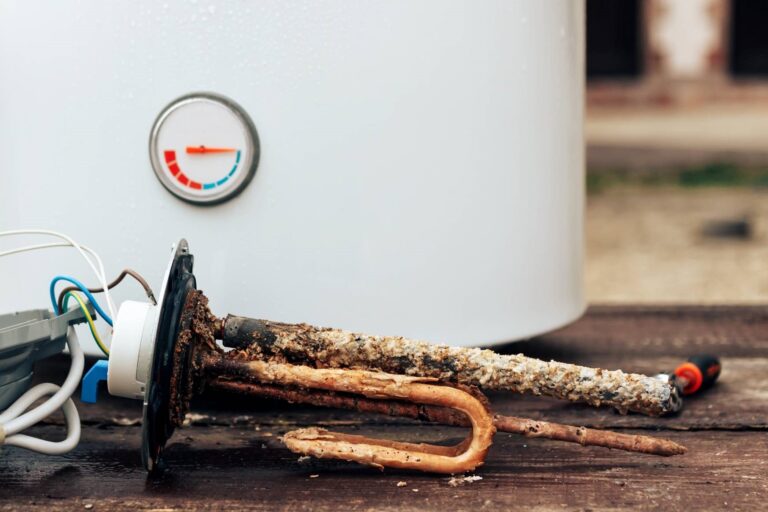What are Electric Water Heater Spare Parts?
Electric water heaters are crucial appliances in many homes and businesses, providing a reliable supply of hot water for various needs. Over time, these appliances may require maintenance or repairs to continue operating efficiently. This is where electric water heater spare parts come into play. Understanding these components and their functions can help you maintain and repair your water heater effectively.
Key Components of Electric Water Heaters
- Heating Elements:
- Function: The heating element is the core component responsible for heating the water in the tank. It converts electrical energy into heat, ensuring a consistent supply of hot water.
- Types: There are typically two types of heating elements used in electric water heaters – screw-in and bolt-in. These elements are made from various materials such as copper, stainless steel, and Incoloy to cater to different heating needs and water conditions.
- Thermostats:
- Function: Thermostats regulate the temperature of the water inside the tank. They ensure the water is heated to the desired temperature and maintain it by turning the heating elements on and off as needed.
- Types: Most electric water heaters have two thermostats – one at the top and one at the bottom. These can be single-element thermostats for smaller tanks or dual-element thermostats for larger tanks.
- Anode Rods:
- Function: The anode rod is a crucial component that prevents the tank from rusting. It attracts corrosive elements in the water, thereby protecting the tank’s interior.
- Materials: Commonly made from magnesium, aluminum, or a combination of metals, anode rods need to be checked regularly and replaced when depleted to ensure the longevity of the water heater.
- Dip Tubes:
- Function: The dip tube directs incoming cold water to the bottom of the tank, where it can be heated. This ensures the water is heated evenly and efficiently throughout the tank.
- Importance: A damaged or broken dip tube can cause cold water to mix with hot water at the top, leading to a reduced supply of hot water.
- Temperature and Pressure Relief Valves (T&P Valves):
- Function: These safety devices prevent the build-up of excessive pressure and temperature within the tank. If either parameter exceeds safe levels, the T&P valve releases water to reduce pressure, preventing potential explosions or damage.
- Maintenance: Regular testing and maintenance of the T&P valve are essential to ensure it functions correctly when needed.
- Drain Valves:
- Function: Drain valves are used to empty the tank for maintenance tasks such as flushing out sediment buildup. This helps in maintaining the efficiency and lifespan of the water heater.
- Materials: Typically made of brass or plastic, these valves should be checked for leaks and functionality during regular maintenance.
Importance of Using Genuine Spare Parts
Using genuine spare parts for your electric water heater is crucial for several reasons:
- Compatibility: Genuine parts are designed specifically for your water heater model, ensuring a perfect fit and optimal performance.
- Durability: Original parts are made to meet the manufacturer’s standards, which often translates to longer-lasting and more reliable components.
- Safety: High-quality spare parts maintain the safety features of your water heater, reducing the risk of malfunctions or accidents.
- Warranty: Using genuine parts often preserves the warranty of your appliance, providing additional protection and peace of mind.
Maintenance and Replacement
Regular maintenance of your electric water heater can prevent the need for frequent part replacements and ensure efficient operation. Here are some tips:
- Regular Inspections: Periodically check the condition of the heating elements, thermostats, anode rods, and other components for signs of wear or damage.
- Flushing the Tank: Annually flush the tank to remove sediment buildup that can reduce heating efficiency and damage components.
- Replacing Anode Rods: Inspect the anode rod every few years and replace it if it is significantly corroded.
- Testing T&P Valves: Regularly test the T&P valve to ensure it is functioning properly and replace it if it is not.
In conclusion, electric water heater spare parts are essential for the maintenance, repair, and efficient operation of your appliance. Understanding these components and their functions can help you address issues promptly, ensuring a consistent supply of hot water and extending the life of your water heater. Always opt for genuine spare parts to maintain the performance, safety, and warranty of your electric water heater.
Introduction to Electric Water Heater Spare Parts
Electric water heaters are integral to providing hot water for domestic and commercial use. Understanding the spare parts of an electric water heater is essential for maintaining its efficiency and prolonging its lifespan. Common components include heating elements, thermostats, anode rods, dip tubes, and pressure relief valves. Using genuine parts is crucial as it ensures compatibility and reliability, reducing the risk of malfunctions and extending the heater’s life.
Key Components of Electric Water Heaters
Electric water heaters consist of several essential components:
- Heating Elements: These are responsible for heating the water. They come in different types, such as screw-in and bolt-in elements.
- Thermostats: These control the water temperature. There are single-element thermostats for smaller tanks and dual-element thermostats for larger tanks.
- Anode Rods: These prevent corrosion inside the tank by attracting corrosive elements in the water.
- Dip Tubes: These direct incoming cold water to the bottom of the tank for even heating.
- Temperature and Pressure Relief Valves: These safety devices release pressure if it becomes too high inside the tank.
How to Identify Faulty Parts in Electric Water Heaters
Identifying faulty parts in an electric water heater can help in timely repairs:
- Heating Element: If there’s no hot water or the water isn’t hot enough, the heating element might be faulty.
- Thermostat: Inconsistent water temperature or no hot water can indicate a thermostat issue.
- Anode Rod: If the water has a metallic smell or taste, it might be due to a depleted anode rod.
- Pressure Relief Valve: Water leaking from the valve or frequent pressure release can signal a problem with the valve.
Steps to Replace Electric Water Heater Spare Parts
Replacing spare parts in an electric water heater requires careful steps:
- Tools Needed: Screwdrivers, wrenches, multimeter, and replacement parts.
- Safety Precautions: Turn off the power supply and drain the tank before starting.
- Replacing Heating Elements:
- Turn off the power and drain the tank.
- Remove the access panel and insulation.
- Disconnect the wires and remove the old element.
- Install the new element, reconnect the wires, and restore the insulation and panel.
- Replacing Thermostats:
- Turn off the power and remove the access panel.
- Disconnect the wires from the old thermostat.
- Install the new thermostat and reconnect the wires.
- Replace the access panel and turn on the power.
Maintenance Tips for Electric Water Heater Parts
Regular maintenance is key to keeping your electric water heater in good condition:
- Regular Inspection: Check for any signs of wear or damage.
- Flushing the Tank: Annually flush the tank to remove sediment buildup.
- Checking Anode Rods: Inspect the anode rod every few years and replace it if necessary.
- Testing Pressure Relief Valves: Regularly test the valve to ensure it’s functioning correctly.
Choosing the Right Spare Parts for Your Electric Water Heater
Choosing the right spare parts is essential for optimal performance:
- Compatibility: Ensure the parts are compatible with your specific heater model.
- Original vs. Aftermarket: Original parts are recommended for better reliability and fit.
- Reliable Sources: Purchase from authorized dealers or reputable suppliers to avoid counterfeit parts.
Troubleshooting Common Issues in Electric Water Heaters
Here are solutions for common water heater problems:
- No Hot Water: Check and replace faulty heating elements or thermostats.
- Inconsistent Temperature: Inspect and replace the thermostat if necessary.
- Unusual Noises: Flush the tank to remove sediment buildup.
- Water Leaks: Identify and fix leaks from pressure relief valves or faulty connections.
Advancements in Electric Water Heater Spare Parts
Recent advancements have improved water heater parts:
- Energy-Efficient Elements: Newer elements consume less power while providing the same heating efficiency.
- Smart Thermostats: Allow remote control and monitoring of water temperature.
- Corrosion-Resistant Anode Rods: Made from materials that last longer and offer better protection.
Cost Analysis of Electric Water Heater Spare Parts
Understanding the cost of spare parts can help in budgeting for repairs:
- Average Prices: Heating elements cost around $20-$50, thermostats $15-$30, and anode rods $20-$50.
- Cost-Effective Repairs: Regular maintenance can prevent expensive repairs.
- Long-Term Savings: Investing in quality parts can reduce the need for frequent replacements.
FAQs About Electric Water Heater Spare Parts
Common questions about electric water heater spare parts include:
- Replacement Frequency: Parts should be inspected regularly and replaced as needed, typically every 3-5 years for anode rods and thermostats.
- Commonly Replaced Parts: Heating elements and thermostats are the most frequently replaced parts.
- Extending Part Life: Regular maintenance and using quality parts can extend the life of water heater components.
- Post-Replacement Issues: If problems persist after replacing parts, consider consulting a professional for further diagnosis.







